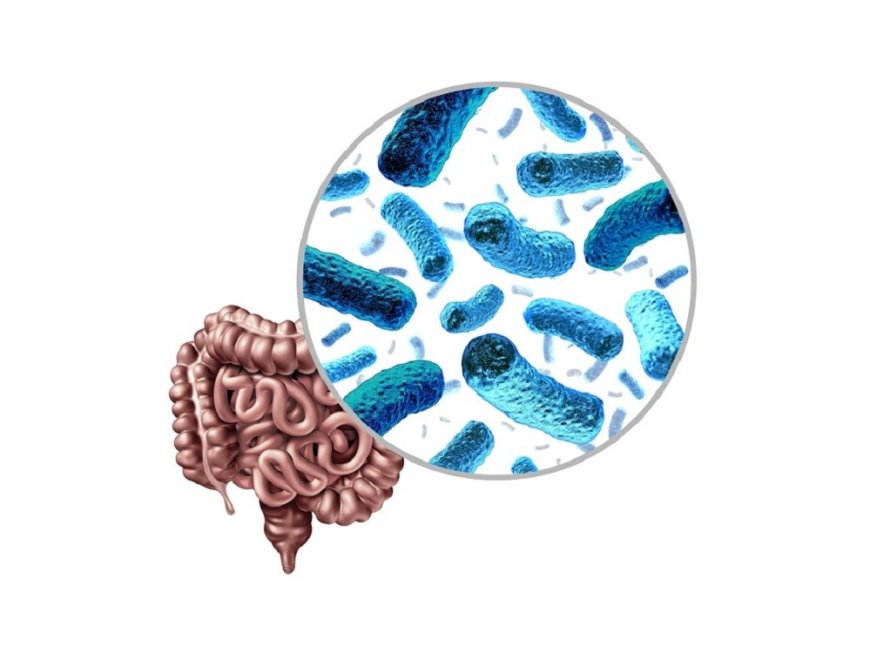A High-Fat Diet Quickly Changes the Gut Microbiota
gut microbiota for your health? How does this diet affect these bacteria? A High-Fat Diet Quickly Changes the Gut Microbiota.

Do you know the importance of gut microbiota for your health? How does this diet affect these bacteria? A High-Fat Diet Quickly Changes the Gut Microbiota.
Intestinal microbiota is a group of bacteria that live in the gut. It has very important functions in life. First, they constitute one of the first barriers to the immune system. They are also responsible for the assimilation of many nutrients and the synthesis of certain vitamins.
Our gut flora consists of 100 billion bacteria of 500 to 1,000 different species. When we are born, our intestines are sterile. Later, bacteria colonize our gut through the food and the environment.
An altered or endangered microbiota (dysbiosis - bacterial breakdown of the large intestine) can lead to deficiencies in iron and calcium absorption or the development of certain diseases. In fact, recent studies have linked bacterial diversity to having protection against certain types of complex diseases. They have also shown that the microbiota can even affect muscle gain.
The Effect of Diet on Intestinal Microbiota
According to some studies, our diet greatly affects the structure and composition of the microbiota. A diet rich in fiber and low in fat increases the population of the genus Prevotella, a type of bacteria that has adapted to recover energy and nutrients from foods rich in plant fiber.
Meanwhile, a diet rich in protein and fat increases the population of the Bacteroides genus. Regular consumption of fiber increases the population of fermentative species, increasing the production of short-chain fatty acids and preventing complex diseases.
In addition, dietary fiber has protective antioxidant effects on the gut. However, while excess protein can form harmful metabolites in the body, prolonged starvation can also affect bacterial populations.
How to Improve the Quality of the Intestinal Microbiota
A good method to ensure the diversity of gut microbiota is to include the regular consumption of probiotics and prebiotics in your diet. The first are living microorganisms that remain active in the gut in amounts sufficient to alter the host's microbiota. You can find them in foods like yogurt.
On the other hand, prebiotics stimulate the growth of probiotics and other bacteria found in the body. An example would be dietary fiber or inulin.
A High-Fat Diet and Intestinal Microbiota
A diet rich in fat reduces the number of Bacteroidetes and increases the number of Firmicutes and Proteobacteria. This change in intestinal flora causes an increase in blood sugar and insulin levels on an empty stomach. It is also possible to cause an increase in body weight and fat and liver mass.
On the other hand, it increases the number of pro-inflammatory cytokines in both plasma and fat, liver and muscle tissues. This means that a high-fat diet can increase inflammation and insulin resistance.
However, daily consumption of prebiotics provides protection against changes in intestinal permeability. It also lowers oxidative stress and inflammation markers.
Is a High-Fat, Low-Carb Diet Dangerous?
It is not unreasonable to think that high-fat diets are harmful to the body, as high amounts of fat and low fiber intake can alter the flora. However, this is not necessarily the case.
Must Read: The Importance of Techniques and Tactics in Sports
A diet rich in multiple and monounsaturated fats with proper dietary fiber intake, and even supplementation with pro and prebiotics keeps your gut microbiota healthy.
Dietary fiber will prevent changes in bacterial species caused by increased fat intake; this will reduce too much inflammation. Therefore, the production of short-chain fatty acids and vitamins will remain intact. All of these serve as a preventive factor for the development of complex diseases.
As a result
The gut microbiota has a direct impact on health and disease prevention. It is very important to ensure the diversity of bacteria and to include dietary fiber and probiotics in our diets.
In this way, we also ensure the presence of fermentative strains that produce essential vitamins for the body and contribute to the functioning of the immune system.
Experts discover new functions of the microbiota every day. They can also attribute this to many physiological processes related to health. Indeed, there are already branches of medicine dedicated solely to studying this phenomenon. With all these researches, it is likely that our diet will become closely related to the type of bacteria in our body in the future.
